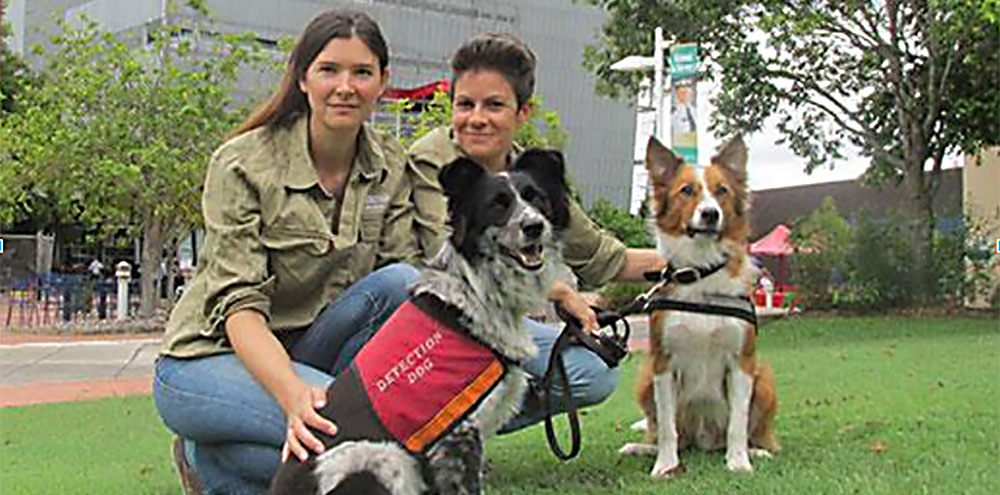Stories from Our Biosphere
USC – Dog Detection Program
At the University of the Sunshine Coast are training, testing and using detection dogs for a range of research and conservation activities including Koala detection (through their scat).

NCBA was able to give real support to the program when the detection dogs surveyed his Bellbird Homestead in the Noosa Hinterland, property of Dick Barnes, President of NCBA. The detection dogs were trained in this case to search for one month old Koala scat.
Detection dogs can be trained on any object that has an odour, which is almost everything. In conservation, dogs have been trained on threatened and rare animals (which because of their very rareness are hard to find), on scats (poo) of these animals, on pest species (feral animals, invasive plants) at their invasion front, on threatened plants and quite impressively, on marine mammals!
Dogs rely on their smell which is easier than relying on sight, as the cone of scent is larger than the object emitting it. Dogs can also follow a trail of scent carried by the wind further than the sight of the object. Smell is not obscured by dense foliage or ground cover. Dogs’ abilities to smell are believed to be between 1,000 and 10,000 better than humans.
Contributed by: Annie Guthrie
Become a Volunteer
Would you like to find out more about volunteering on projects working to support Our Biosphere? There are many great ways you can contribute, we’re always looking for volunteers. Get in touch today!
